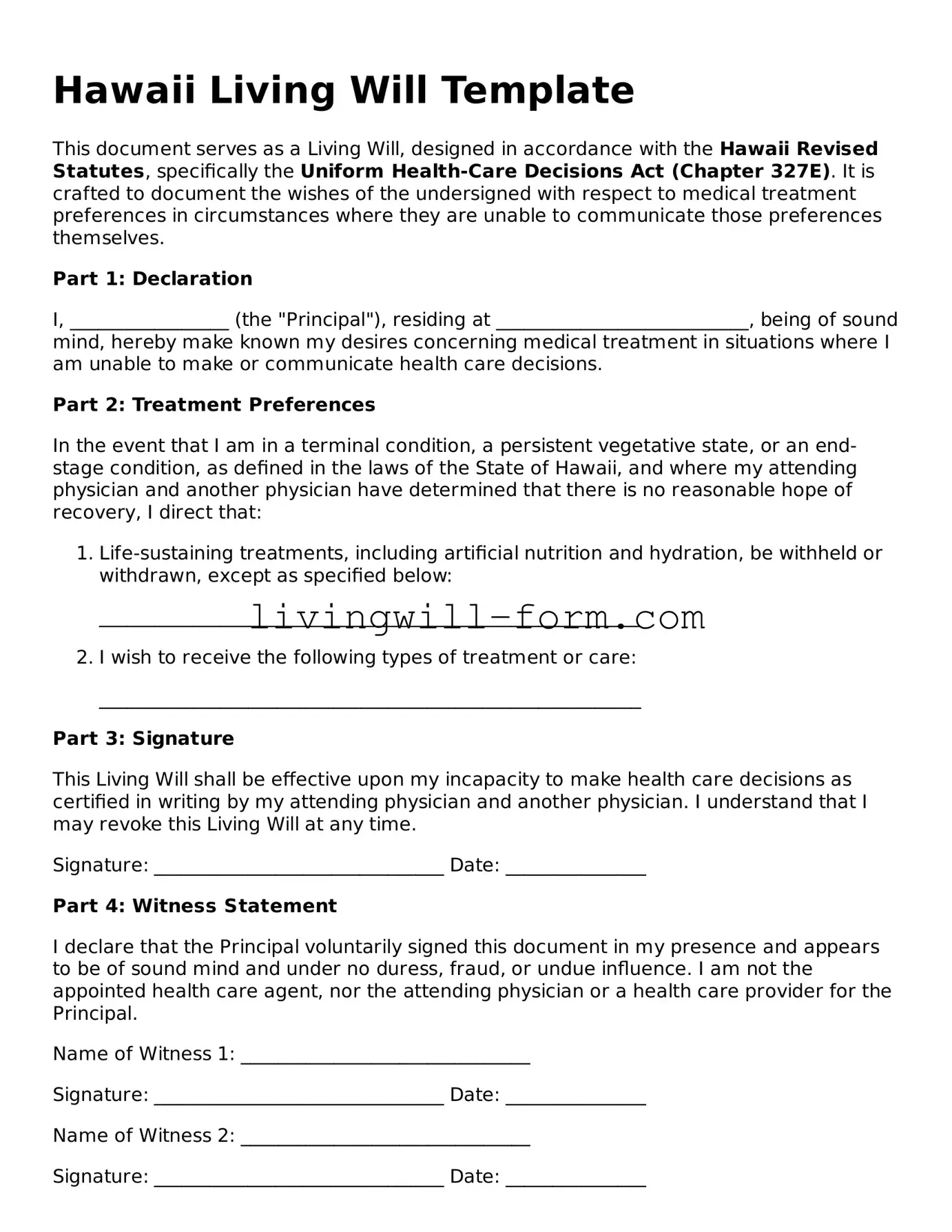Attorney-Verified Hawaii Living Will Template
The Hawaii Living Will form is a legal document that allows an individual to outline their preferences for medical care in the event they are unable to communicate their decisions due to severe illness or incapacity. This crucial document ensures that a person's medical treatment preferences are respected and followed. By completing this form, individuals can take control of their future healthcare and provide peace of mind to themselves and their loved ones.
Access This Living Will

Attorney-Verified Hawaii Living Will Template
Access This Living Will

Access This Living Will
or
▼ Living Will PDF
Finish the form and move forward
Edit and finish your Living Will online fast.